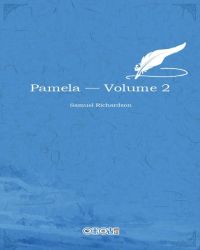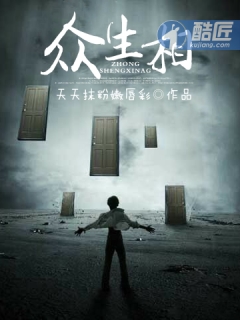CHAPTER II
您可以在百度里搜索“Now It Can Be Told 艾草文学(www.321553.xyz)”查找最新章节!
CHAPTER II
The autumn of 1915 was wet in Flanders and Artois, where our men settled down—knee-deep where the trenches were worst—for the winter campaign. On rainy days, as I remember, a high wind hurtled over the Flemish fields, but it was moist, and swept gusts of rain into the faces of men marching through mud to the fighting-lines and of other men doing sentry on the fire-steps of trenches into which water came trickling down the slimy parapets.
When the wind dropped at dusk or dawn a whitish fog crept out of the ground, so that rifles were clammy to the touch and a blanket of moisture settled on every stick in the dugouts, and nothing could be seen through the veil of vapor to the enemy's lines, where he stayed invisible.
He was not likely to attack on a big scale while the battlefields were in that quagmire state. An advancing wave of men would have been clogged in the mud after the first jump over the slimy sand-bags, and to advance artillery was sheer impossibility. Nothing would be done on either side but stick-in-the-mud warfare and those trench-raids and minings which had no object except “to keep up the spirit of the men.” There was always work to do in the trenches—draining them, strengthening their parapets, making their walls, tiling or boarding their floorways, timbering the dugouts, and after it was done another rainstorm or snowstorm undid most of it, and the parapets slid down, the water poured in, and spaces were opened for German machine-gun fire, and there was less head cover against shrapnel bullets which mixed with the raindrops, and high explosives which smashed through the mud. The working parties had a bad time and a wet one, in spite of waders and gum boots which were served out to lucky ones. Some of them wore a new kind of hat, seen for the first time, and greeted with guffaws—the “tin” hat which later became the headgear of all fighting-men. It saved many head wounds, but did not save body wounds, and every day the casualty lists grew longer in the routine of a warfare in which there was “Nothing to report.”
Our men were never dry. They were wet in their trenches and wet in their dugouts. They slept in soaking clothes, with boots full of water, and they drank rain with their tea, and ate mud with their “bully,” and endured it all with the philosophy of “grin and bear it!” and laughter, as I heard them laughing in those places between explosive curses.
On the other side of the barbed wire the Germans were more miserable, not because their plight was worse, but because I think they lacked the English sense of humor. In some places they had the advantage of our men in better trenches, with better drains and dugouts—due to an industry with which ours could never compete. Here and there, as in the ground to the north of Hooge, they were in a worse state, with such rivers in their trenches that they went to enormous trouble to drain the Bellewarde Lake which used to slop over in the rainy season. Those field-gray men had to wade through a Slough of Despond to get to their line, and at night by Hooge where the lines were close together—only a few yards apart—our men could hear their boots squelching in the mud with sucking, gurgling noises.
“They're drinking soup again!” said our humorists.
There, at Hooge, Germans and English talked to one another, out of their common misery.
“How deep is it with you?” shouted a German soldier.
His voice came from behind a pile of sand-bags which divided the enemy and ourselves in a communication trench between the main lines.
“Up to our blooming knees,” said an English corporal, who was trying to keep his bombs dry under a tarpaulin.
“So?... You are lucky fellows. We are up to our belts in it.”
It was so bad in parts of the line during November storms that whole sections of trench collapsed into a chaos of slime and ooze. It was the frost as well as the rain which caused this ruin, making the earthworks sink under their weight of sand-bags. German and English soldiers were exposed to one another like ants upturned from their nests by a minor landslide. They ignored one another. They pretended that the other fellows were not there. They had not been properly introduced. In another place, reckless because of their discomfort, the Germans crawled upon their slimy parapets and sat on top to dry their legs, and shouted: “Don't shoot! Don't shoot!”
Our men did not shoot. They, too, sat on the parapets drying their legs, and grinning at the gray ants yonder, until these incidents were reported back to G. H. Q.—where good fires were burning under dry roofs—and stringent orders came against “fraternization.” Every German who showed himself was to be shot. Of course any Englishman who showed himself—owing to a parapet falling in—would be shot, too. It was six of one and half a dozen of the other, as always, in this trench warfare, but the dignity of G. H. Q. would not be outraged by the thought of such indecent spectacles as British and Germans refusing to kill each other on sight. Some of the men obeyed orders, and when a German sat up and said, “Don't shoot!” plugged him through the head. Others were extremely short-sighted... Now and again Germans crawled over to our trenches and asked meekly to be taken prisoner. I met a few of these men and spoke with them.
“There is no sense in this war,” said one of them. “It is misery on both sides. There is no use in it.”
That thought of war's futility inspired an episode which was narrated throughout the army in that winter of '15, and led to curious conversations in dugouts and billets. Above a German front-line trench appeared a plank on which, in big letters, was scrawled these words“The English are fools.”
“Not such bloody fools as all that!” said a sergeant, and in a few minutes the plank was smashed to splinters by rifle-fire.
Another plank appeared, with other words:
“The French are fools.”
Loyalty to our allies caused the destruction of that board.
A third plank was put up:
“We're all fools. Let's all go home.”
That board was also shot to pieces, but the message caused some laughter, and men repeating it said: “There's a deal of truth in those words. Why should this go on? What's it all about? Let the old men who made this war come and fight it out among themselves, at Hooge. The fighting-men have no real quarrel with one another. We all want to go home to our wives and our work.”
But neither side was prepared to “go home” first. Each side was in a trap—a devil's trap from which there was no escape. Loyalty to their own side, discipline, with the death penalty behind it, spell words of old tradition, obedience to the laws of war or to the caste which ruled them, all the moral and spiritual propaganda handed out by pastors, newspapers, generals, staff-officers, old men at home, exalted women, female furies, a deep and simple love for England and Germany, pride of manhood, fear of cowardice—a thousand complexities of thought and sentiment prevented men, on both sides, from breaking the net of fate in which they were entangled, and revolting against that mutual, unceasing massacre, by a rising from the trenches with a shout of, “We're all fools!... Let's all go home!”
In Russia they did so, but the Germans did not go home, too. As an army and a nation they went on to the Peace of Brest-Litovsk and their doom. But many German soldiers were converted to that gospel of “We're all fools!” and would not fight again with any spirit, as we found at times, after August 8th, in the last year of war. Now It Can Be Told




